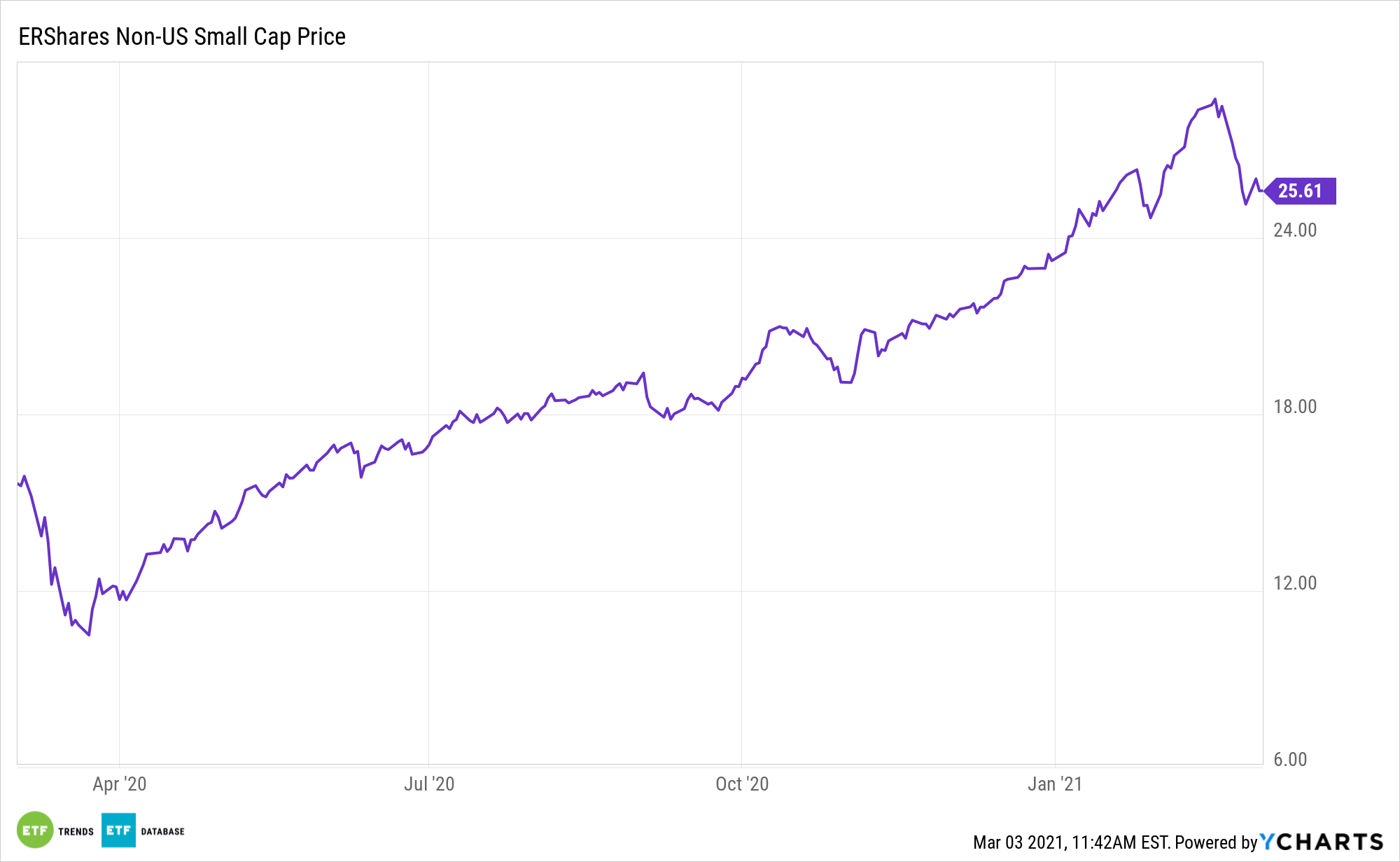Investors often have a domestic basis, particularly with small cap stocks. They can help rectify large cap, domestic tendencies with the ERShares NextGen Entrepreneurs ETF (ERSX).
ERSX selects the most entrepreneurial, primarily Non-US Small Cap companies, that meet the thresholds embedded in its proprietary Entrepreneur Factor (EF). ERShares’ ETF delivers compelling performance across a variety of investment strategies without disrupting investors’ underlying risk profile metrics. Their geographic diversity enables them to harness global advantages through additional returns associated with currency fluctuations, strategic geographic allocations, comparative trade imbalances, and relative supply/demand strengths.
Data confirm U.S. investors are under-allocated to international small caps.
“International Mid/Small-Cap stocks market value is 6% of the total world’s equity market, but US investors’ allocation is just 1.6% in mutual funds to this asset class,” according to Seeking Alpha.

ERSX Perks
One of the highlights of small cap equity investing is the ability to capitalize on value-added growth companies that can provide room for more future gains. On the opposite end of the spectrum, large cap equities like big tech stocks may have already reached their peaks.
“One reason US investors should consider international stocks at this time is the trade-weight value of the USD is declining, which benefits international stocks,” adds Seeking Alpha.
Small cap investors already know that looking at equities outside the large cap universe can yield substantial gains, but one area they may not have considered is looking abroad.
International small caps have “generated annual returns of only 6.7% for the past 10 years compared to 14% for the U.S. Large Company Index (per IFA data). However, valuations are attractive and there are two emerging catalysts that could propel the sector to outperform U.S. large caps in the coming years,” notes Seeking Alpha.
International small caps are generally export-oriented, globally structured, innovative, and have a high to dominant share of a niche market, often one in which the U.S. counterparts don’t compete effectively.